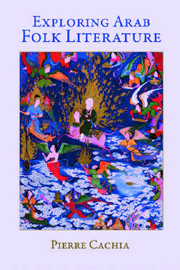Book contents
- Frontmatter
- Contents
- Acknowledgements
- Dedication
- Foreword by Professor Clive Holes
- Introduction
- The Transcription of Both Classical and Colloquial Arabic
- Part 1 Fact Finding
- Part 2 Single or Related Items
- Part 3 Cultural and Social Implications
- 14 Two Perspectives on the ‘Other’ in Arabic Literature
- 15 Maltese: Arabic Roots and Sundry Grafts
- 16 Social Values Reflected in Egyptian Popular Ballads Studies in Modern Arabic Literature, ed. R. C. Ostle (London, 1975)
- 17 Folk Themes in the Works of Najīb Surūr Arabic and Middle Eastern Literatures, 3, 2 (July 2000)
17 - Folk Themes in the Works of Najīb Surūr Arabic and Middle Eastern Literatures, 3, 2 (July 2000)
from Part 3 - Cultural and Social Implications
Published online by Cambridge University Press: 05 February 2015
- Frontmatter
- Contents
- Acknowledgements
- Dedication
- Foreword by Professor Clive Holes
- Introduction
- The Transcription of Both Classical and Colloquial Arabic
- Part 1 Fact Finding
- Part 2 Single or Related Items
- Part 3 Cultural and Social Implications
- 14 Two Perspectives on the ‘Other’ in Arabic Literature
- 15 Maltese: Arabic Roots and Sundry Grafts
- 16 Social Values Reflected in Egyptian Popular Ballads Studies in Modern Arabic Literature, ed. R. C. Ostle (London, 1975)
- 17 Folk Themes in the Works of Najīb Surūr Arabic and Middle Eastern Literatures, 3, 2 (July 2000)
Summary
Najīb Muḥammad Surūr was born in 1932 in the village of >Axḥāb (in the Governorate of Daqahliyya in Lower Egypt) where his father was a tax collector. A poem of his is cast in the words of a man recalling how as a child he was filled with pride when his father was summoned to appear before the village headman, but was shattered when he saw the representative of authority take off his shoe and use it to beat the man standing defenceless before him. If this is meant to record an experience of the poet's, the incident must have been magnified in his imagination for it is difficult to believe that the father would have been so mistreated if he was a state official. The poem, however, is indicative of Surūr's lifelong resentment of authority, which was to cost him dearly.
After completing his primary and secondary education in provincial schools, he enrolled in Cairo University, but during a summer vacation back home he is said to have led a number of students in raiding and vandalising the home of a local Pasha, and to have been severely flogged by the Pasha's henchmen in revenge.
He also tells us in his verse that at the university he studied law – ‘the law of the jungle/recited by a gang’ – but that he abandoned the course in his last year ‘believe me, not because I feared the examination/but that I feared out there a den of serpents/preying on doves.’
- Type
- Chapter
- Information
- Exploring Arab Folk Literature , pp. 203 - 213Publisher: Edinburgh University PressPrint publication year: 2011



